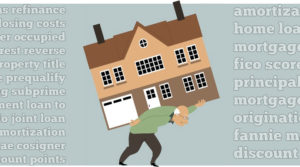
August 1, 2024
Comparing Conventional Reverse Mortgages To FHA HECMs
A reverse mortgage is a refinance option for homeowners 62 or older who want to tap into their home equity. These loans are designed for senior homeowners who own their homes outright or are close to doing so. There are FHA reverse mortgages and conventional equivalents. Some borrowers are right for a conventional option, while others should consider the FHA HECM. Traditional mortgages require monthly payments to a lender. In contrast, reverse mortgages allow senior homeowners to borrow money secured by the equity in their home. These loans offer cash back to the borrower in a variety of options, including a lump sum, monthly payments, or a line of credit. Typically, repayment is not required during the borrower’s lifetime unless the home is sold or no longer used as the | more...








